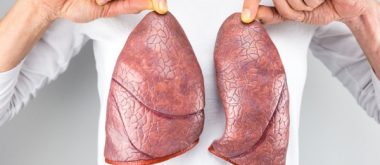Eating healthy, exercising and going to the doctor regularly can promote a long, healthy life, but a new study has identified a possible factor beyond our control: whether you had a grandparent who went to college. The study, conducted by researchers at Drexel University and colleagues at the University of California and the University of North Carolina, was recently published in the journal Social Science and Medicine.
5 Different Epigenetically Based Aging Clocks
Examining data across three generations – education of parents and grandparents, and health data of parents and their children – the group found a statistically significant association between grandparents’ education level and the epigenetically based “real” age of their grandchildren (short definition of what is meant by “real”: how old a person is based on their health profile and cells). The study’s finding that grandchildren of college-educated grandparents age more slowly biologically (i.e., younger biological age relative to chronological age) than grandchildren whose grandparents did not have a college degree is based on five different epigenetically based aging clocks. These clocks use a saliva swab to examine a biological process known as DNA methylation, which changes as the body ages.

“The research has established a link between social and socioeconomic factors, as well as adverse childhood circumstances, and health status,” said lead author Agus Surachman, PhD, assistant professor at the Dornsife School of Public Health, who conducted the study while a postdoctoral fellow at the University of California, San Francisco. “We know from animal studies that health is passed down through multiple generations, from grandparents to grandchildren. But now we have solid data for humans showing that not only do parents’ socioeconomic factors play a role in their children’s health, but that this influence extends back another generation.”
Previous human studies in this area have found that traumatic experiences, such as the Holocaust and the Tutsi genocide, can influence the methylation of genes in survivors and their children. The data in this study fill an important gap by examining a general population and a common crude index of social stress – educational attainment. The authors say that parents’ educational attainment is a useful measure of children’s early life socioeconomic status and exposure to social stressors. Socioeconomic advantages of parents in early life may be associated with a better health profile of their offspring, particularly in the maternal line, via epigenetic mechanisms, according to Surachman.
Epigenetic clocks are promising tools for estimating life expectancy and can provide insight into the risk of chronic diseases and other health outcomes. The tests can cost consumers hundreds of dollars, but experts say the cost could come down as the technology improves. Mothers were recruited at ages 9 to 10 for the NHLBI Growth and Health Study (NGHS 1) and then again three decades later for the National Growth and Health Study (NGHS 2) to collect health, education and health information to determine epigenetic aging, or the biological age of their youngest child (ages 2 to 17). The researchers controlled for other factors that may influence children’s health, such as grandchildren’s age, gender, children’s body mass index (BMI), and characteristics of the mother – the mother’s childhood family structure, health profile, and marital status.
Link Between the Socioeconomic Status of Grandparents and the Epigenetic Age of Grandchildren
The team also wanted to find out what could help explain the intergenerational transmission – whether the mother’s health could help explain the transmission effect between the grandparents’ education and the biological age of the grandchildren. They used the mother’s health data from childhood and adulthood and measured factors such as BMI, cardiovascular health and c-reactive protein in adulthood to measure inflammation in the body, and found that the mother’s health explained a small part of the association between grandparents’ education and their grandchildren’s epigenetic age (14.5% to be exact). The association between grandparents’ socioeconomic status and grandchildren’s epigenetic age is a remarkable finding across all generations, according to lead author Elissa Epel, PhD, a professor at the University of California, San Francisco. This opens up a variety of possible explanations and needs to be replicated. For now, the researchers know that poorer maternal metabolic health is a partial mediator of this relationship.
The authors are following up on this cohort to examine grandparents’ and parents’ predictors of offspring when they reach adulthood. They are also investigating social and psychological factors for accelerated epigenetic aging in patients with chronic diseases, including survivors of breast cancer and chronic kidney disease. However, more research is needed to examine the myriad factors that influence the health trajectory of adolescents, the authors say.





